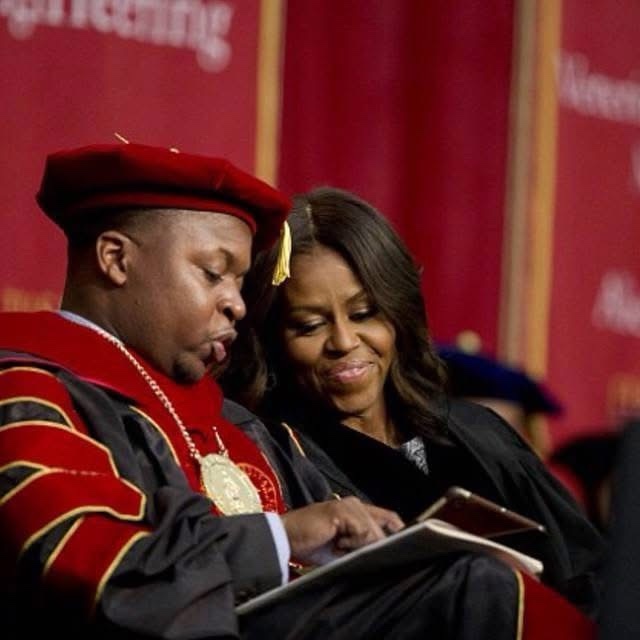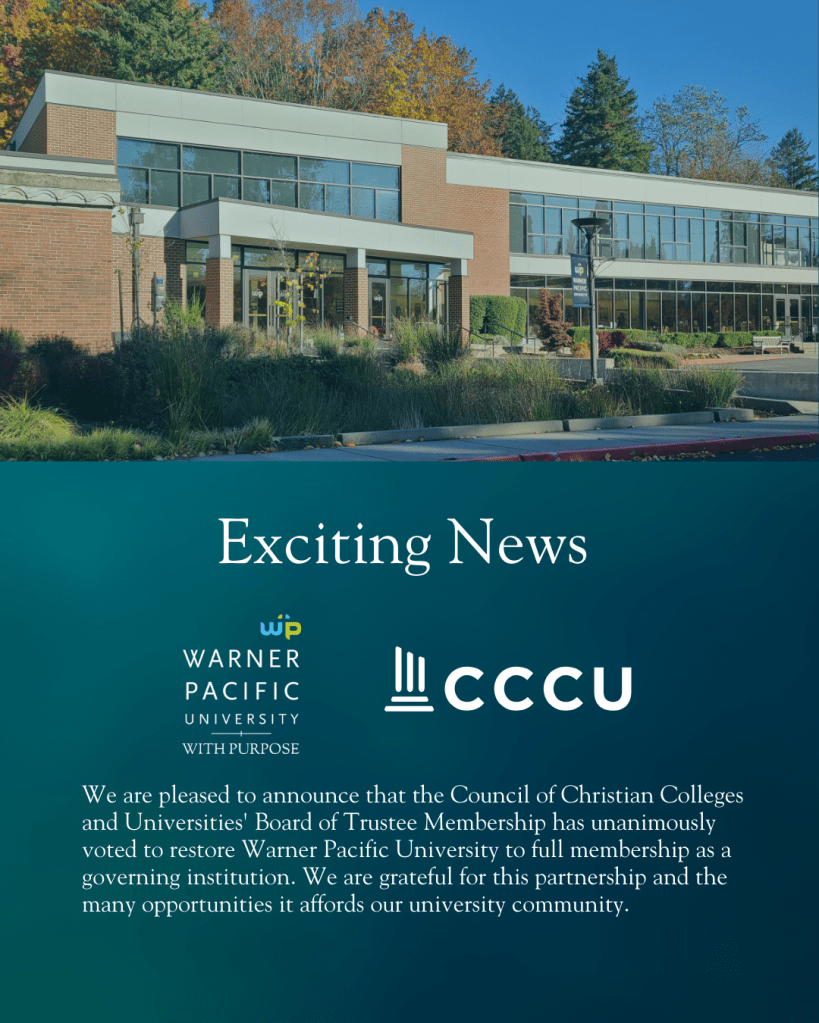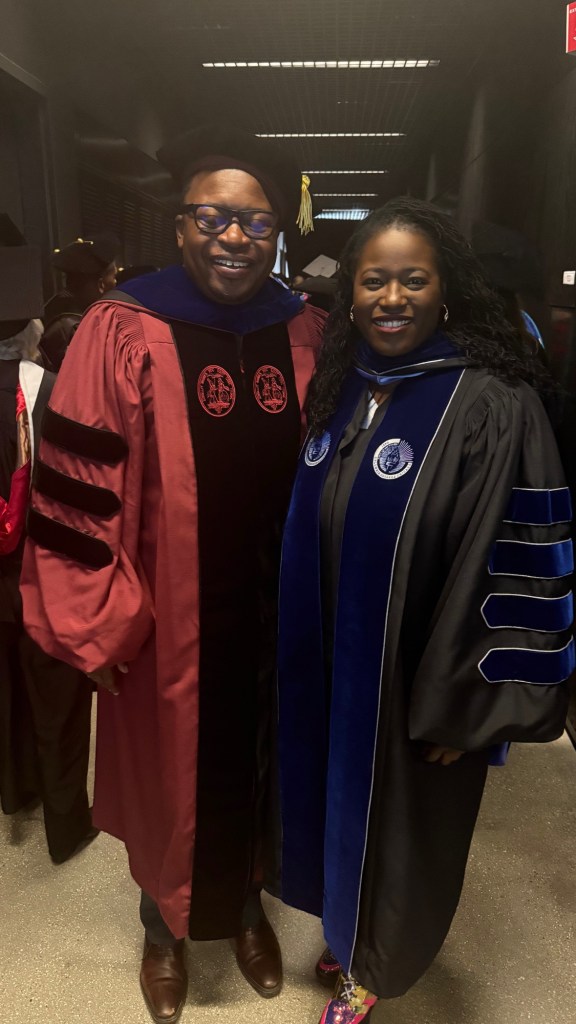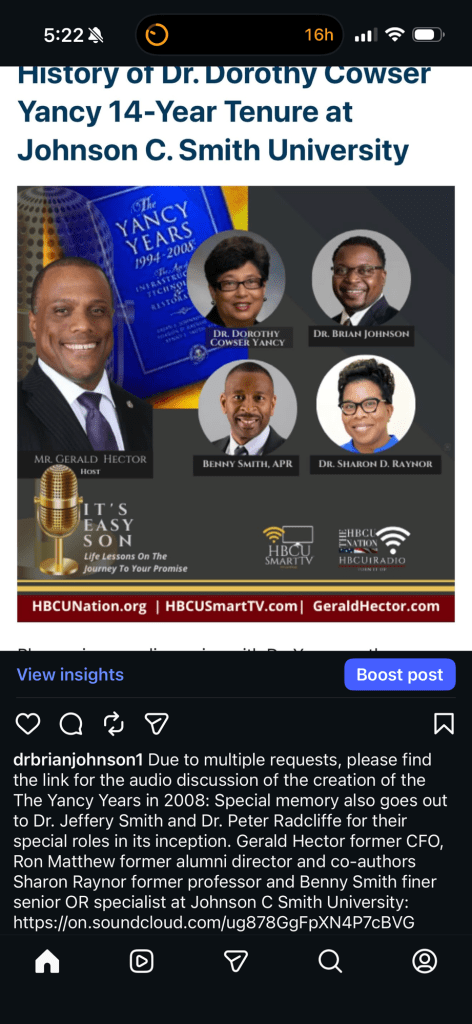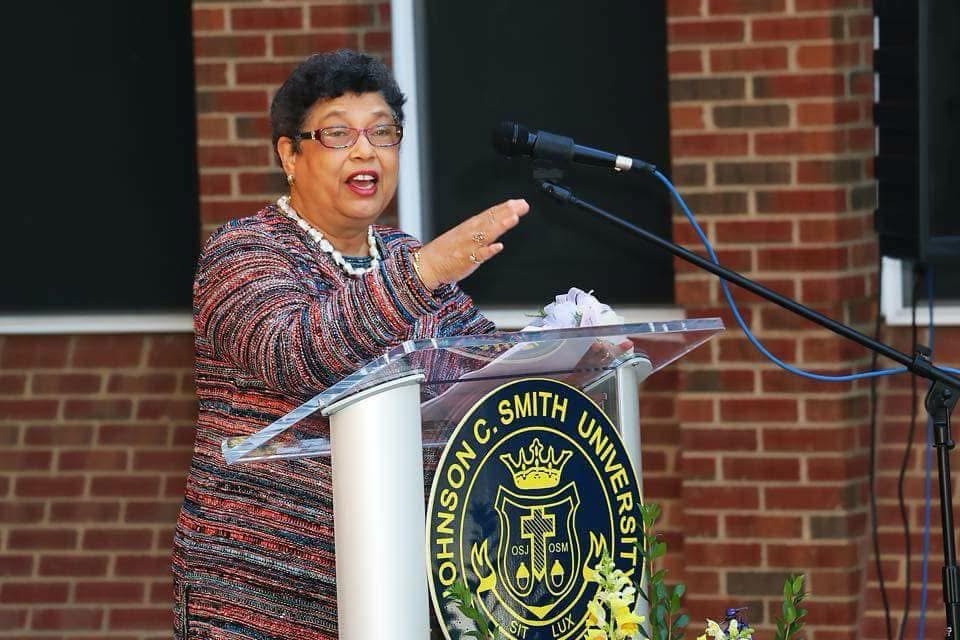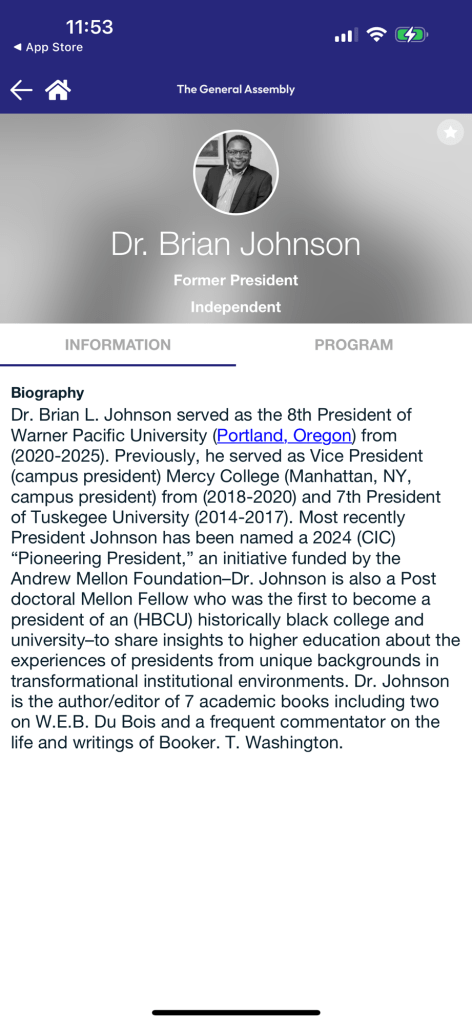Christianity, African American Intellectual History & Scholarship
“No doubt the beggar’s joy was not true joy; but it was a great deal truer than the joy which I, with my ambition, was seeking. And undoubtedly he was happy while I was worried; he was carefree while I was full of fears. And if I were asked which I would prefer, to be merry or to be frightened, I should reply, ‘to be merry.’ But if I were asked next whether I would prefer to be a man like the beggar or a man like I then was myself, I should choose to be myself, worn out as I was with my cares and my fears. Was not this absurd? Was there any good reason for making such a choice? For I had no right to put myself in front of the beggar on the grounds that I was more learned than he, since I got no joy out of my learning. Instead I used it to give pleasure to men—not teach them, only to please them.” —St. Augustine, The Confessions of Saint Augustine, Book VI, Ch. VII
Mark Noll’s (1994) The Scandal of the Evangelical Mind argues, in relation to the larger European American evangelical tradition, that the “scandal” of the evangelical community is the lack of attention paid to its rich intellectual heritage in the Protestant tradition. In explaining his sense of intellectual tradition, Noll writes, “By an evangelical ‘life of the mind’ I mean the effort to think like a Christian—to think within a specifically Christian framework—across the whole spectrum of modern learning, including economics and political science, literary criticism and imaginative writing, historical inquiry and philosophical studies, linguistics and the history of science, social theory and the arts…failure to exercise the mind for Christ in these areas has become acute in the twentieth century. That failure is the scandal of the evangelical mind.”[1]
Noll’s definition has strong reverberations when contextualized within an African American intellectual tradition. Historically, African American intellectuals and scholars have viewed the academic “scandal” facing the paucity of serious African American intellectual and scholastic thought in terms of a “crisis.” Since Harold Cruse’s (1967) The Crisis of the Negro Intellectual, African American intellectuals such as Nathan Hare, bell hooks, Cornel West, Hortense Spillers, and Henry Louis Gates, Jr. have responded directly or indirectly to Cruse’s despondency about African American intellectual culture. The most notable of these respondents was Cornel West. In prophetic fashion, West may have been “the voice of one crying in the wilderness,” preparing the way and making straight paths for revitalizing African American intellectual and scholarly life in the 21st century.
To be sure, West’s intellectual positioning with regard to African American intellectual and scholarly life did not amount to overbearing advocacy or espousal of Christianity, but it did represent the kind of clearing of the land or demolition that is necessary before either erecting or reconstructing African American intellectual thought and scholarship. For West, the state of African American intellectual and academic life is not a “crisis” but a “dilemma”—a quandary that has no solution among available alternatives.
In his essay, “The Dilemma of the Black Intellectual,” West outlines and discusses four distinct frameworks for literate African American intellectual activity that may be capitalized upon in future work.[2] What is most compelling about West’s essay is what he does not suggest. Prior to discussing these four models of historical African American intellectual production, West suggests “that there are two organic intellectual traditions in African American life: the black Christian tradition of preaching and the black musical tradition of performance…Both [oral] traditions are rooted in black life.”[3] And in concluding his essay, West remarks that the expansion of literate black intellectual activity:
“…will occur more readily when black intellectuals take a more candid look at themselves, the historical and social forces that shape them, and the limited though significant resources of the community from whence they come. A critical ‘self-inventory’ that scrutinizes the social positions, class locations, and cultural socializations of black intellectuals is imperative… The future of the black intellectual lies neither in a deferential disposition toward the Western parent nor a nostalgic search for the African one. Rather, it resides in a critical negation, wise preservation, and insurgent transformation of this black lineage, which protects the earth and projects a better world.”[4]
Contained within the whole of West’s argument—which tries to project some hope against the plight surrounding present scholastic difficulties in African American scholarship—is a latent framework for merging successful oral African American intellectual history with its less successful descendants of the letter.
What is the most likely point of convergence between the intensely sermonic African American oral tradition and the African American intellectual tradition? Where are the most “significant [historical] resources” that African American scholars may draw upon when studying the African American communal experience in America? What would a “self-inventory” of African American culture reveal about African American intellectual and literate life? What intellectual “lineage” can African American scholars hope to rely upon that has sufficient institutional and communal interplay to promote genuine intellectual exchange between persons within and beyond the academy? Finally, where might this “wise preservation” of a rich and complex intellectual tradition be found that is neither in the Western backdrop of the Gutenberg Press nor in the explicitly oral, dynamic, and pluralistic African Diaspora?
CHRISTIANITY AND AFRICAN AMERICAN INTELLECTUAL HISTORY
African American scholarship should immerse itself in projects that ferret out distinctive Christian components. By revisiting an African American literary ancestry consisting of slave narratives, poetry, political/polemical/abolitionist tracts, novels, speeches, sermons, private journals, letter writing, newspapers, and magazines, scholars might uncover the ways in which African American engagement with Christianity has created a vibrant and sustainable tradition of African American intellectual acumen. Such a task would perhaps resolve the “scandal,” “crisis,” and “dilemma,” which all but ostracize African American scholars from the larger African American community and the predominantly white American academy alike.
Such a task does not fail to recognize the profound and traumatic impacts of America’s historical abuse of Christianity, recorded by African American and European American writers alike. Racism in the European American community and patriarchal abuses in the African American community rightly should be taken into account when assessing a distinct African American intellectual tradition in relationship to its Christian underpinnings. Yet this examination would not simply amount to Black liberationist theology as the only acceptable framework through which to discuss African American engagement with Christianity.
The sort of investigations that I am suggesting are tantamount to a recognition of a living and breathing historical Christianity, which has always been and will ever remain a part of the African American community. In the universal life cycle of births, weddings, and deaths—including renunciations of the plausibility of Providence and the divinity of Jesus Christ—Christianity has always been part of the air that African Americans live, move, and breathe within; as a result, it is virtually impossible to extract African American thought from its deeply imbued Christian framework. To borrow a proverbial phrase, “it’s like taking a fish out of water.”
George Marsden’s groundbreaking effort in The Outrageous Idea of Christian Scholarship—which argues for the acceptance of academically rigorous “faith-informed” perspectives in the academy—also provides an insightful, yet perfunctory, glance into the predicament of aspiring African American scholars who wish to pursue African American academic projects in relation to their Christian dimensions. Marsden writes:
“African Americans, for example, are enthusiastically encouraged to enter the mainstream academy, but the condition typically has been that they do not bring the religious dimensions of their culture into intellectual life. Ever since African Americans began to be permitted to play a role in mainstream academic life, they were also sent the clear message that they must conform to the standards of the mainstream academy concerning religion. No matter how religious they might be, they were not encouraged to think about the implications of their religious beliefs for their intellectual life, unless they were studying in divinity schools.”[5]
(I am sure Marsden would later agree that the invitation in the sixties, in many ways, to both the traditional and Christian academy, now carries another caveat: seek and speak “justice” only and explicitly, without also citing the historical hope and exemplars—personages and periods—for overcoming injustice. This is in spite of the fact that the Christian motif understands there is hardly ever any “justice” as seen in the progenitor of this faith.)
All the same, Marsden’s account is reason enough for aspiring African American scholars to resist Christian examinations as part of a distinct African American tradition. Far more disturbing is that such sentiment is found in African American thought as well. Significant African American intellectual figures have also held hostile positions about Christianity’s influence in tracing African American intellectual lineage. Richard Wright’s remarks in “Blueprint of Negro Writing” are an example. Wright contends:
It was through the portals of the church that the American Negro first entered the shrine of western culture. Living under slave conditions of life, bereft of his African heritage, the Negroes’ struggle for the religion of the plantations between 1820-1860 assumed the form of a struggle for human rights. It remained a relatively revolutionary struggle until religion began to serve as an antidote for suffering and denial. But even today there are millions of American Negroes whose only sense of a whole universe, whose only relation to society and man, and whose only guide to personal dignity comes through the archaic morphology of Christian salvation.[6]
Even while granting Wright’s premises as fact, the question still remains: How does an intellectual assumption that identifies African American engagement with Christianity as inadequate, illegitimate, embarrassing, and intellectually unworthy of serious engagement reconcile with the overwhelming evidence of African American intellectual reliance upon Christianity? The historical fact remains that the African experience in America, conventionally speaking, does begin in Jamestown in 1619. Jamestown and other similarly situated slave-trading posts, without question, mark the beginning of the African American experience in America.
Certainly, one way of proceeding as an African American scholar is to retreat to an intellectual framework that suggests examining one’s history in light of the drudgery and demeaning nature of slavery produces uninspiring explorations of the earliest literary antecedents. On the other hand, one could just as easily consider American slavery as an intellectually viable pretext for ingenious African American intellectual activity and countless examinations of fictional and historical efforts that overcame this fixed fate that Wright describes.
Since both Wright and James Baldwin’s denunciations of the fictional—not personal—example of Uncle Tom (Josiah Henson), our scholarship and teaching simply decry, unilaterally, all the wrongs that have been done upon the community from 1619 to the present without examining the periods and personages where African and American Christian engagement produced communal and individual prosperity in spite of prevailing societal conditions. (This would include the veritable stories of historical personages such as Josiah Henson and Booker T. Washington.)
As opposed to such a reclamation, what is most popular now is for African American non-academics to write and be published in both Christian and traditional academic spaces while possessing little to no academic credentialing or even familiarity with either the secular or Christian academy. One need only hold the political line and decry that the purpose of the black church and Christian engagement is for “justice” exclusively, without any imagination for how this might be applied—as applied historically—within its own community, particularly reform and uplift work. The founding of the American Negro Academy by Alexander Crummell, W.E.B. Du Bois, and others envisioned an African American academy that would not simply argue the wrongs of America but also address how such wrongs might be overcome through the efficacy amd pragmatism of Christianity.
No ideological position in the African American community—and, for that matter, in the wider American community—is ever free from the rubric of Christianity. It is the “oversoul” of all of Americana, ever serving as a referent or sounding board from early American Puritanism to contemporary American postmodernism. Similar to F.O. Matthiessen’s suggestion that “one way to understand America’s intellectual history is through Puritan orthodoxy, Unitarianism, and transcendentalism,”[7] if indeed African American scholarship serves a communal purpose by offering a variety of ways for students to theorize, understand, and appropriate an intellectual and literary history, then it becomes increasingly problematic to fail to recognize a fuller, broader (not a single-minded, century-long maelstrom) treatment of Christianity in African American intellectual history as one of many justifiable scholarly approaches, methodologies, and areas of investigation in African American scholarship.
Extensive scholarly investigations of African American intellectual figures such as Booker T. Washington, Phyllis Wheatley, Jupiter Hammon, Zora Neale Hurston, Dr. Mary McLeod Bethune Cookman, Frederick Douglass, Charles Chesnutt, W.E.B. Du Bois, William Wells Brown, Maria W. Stewart, James Baldwin, Alice Walker, Toni Morrison, Nat Turner, David Walker, Frances Harper, participants in the American Negro Academy, the Harlem Renaissance, Alexander Crummell, Jean Toomer, James Weldon Johnson, Amiri Baraka, Paul Laurence Dunbar, Harriet Wilson, Margaret Walker, Ernest Gaines, Absalom Jones, Richard Allen, Randall Kenan, Rudolph Fisher, Dr. Martin Luther King, Jr., Nathan Hare, Jesse Jackson, George Washington Carver, Fannie Lou Hamer, among many others—which flesh out the Christian contours of distinctly creative intellectual projects—are crucial for potent scholarly connectivity with students and community members.
In a January 7, 2005 article appearing in The Chronicle of Higher Education, titled “One University Under God,” Stanley Fish recounts a reporter’s desire to “know what would succeed high theory and the triumvirate of race, gender and class as the center of intellectual energy in the academy.” To this Stanley Fish answered “like a shot: religion.”
Beyond Fish’s some 20 plus year prognostication, perhaps in the face of the waning presence of legitimate, organic, and authentic presence in the academy—both secular and Christian—Christianity and African American scholarship answer a most pressing question in the 21st-century American academy: How do we promote authentic, innovative, and representative scholarship among African American scholars and professors that will genuinely invite African American students and community members to participate in shaping 21st-century American thought within both the traditional and Christian academy?
